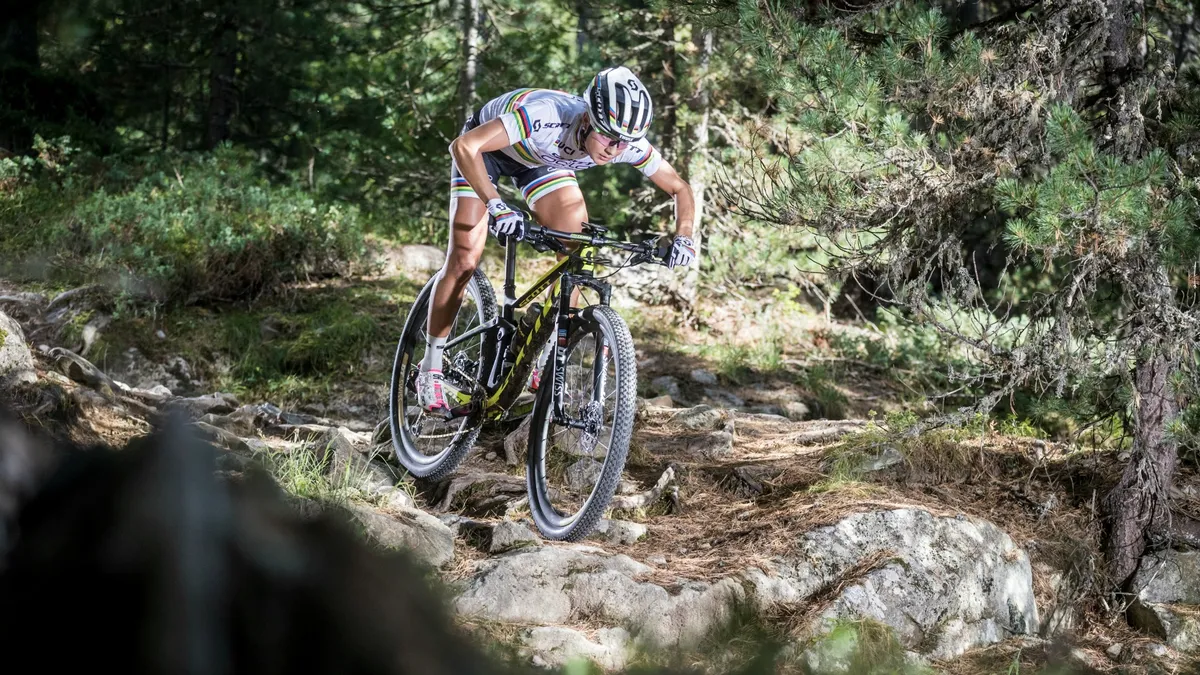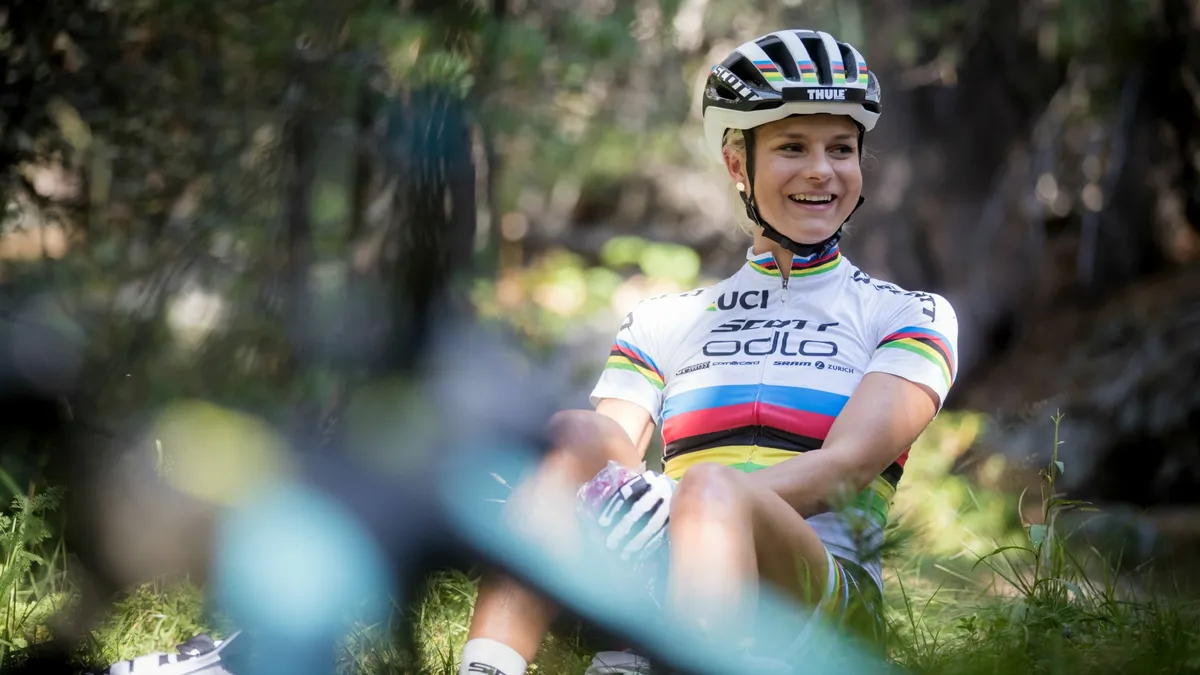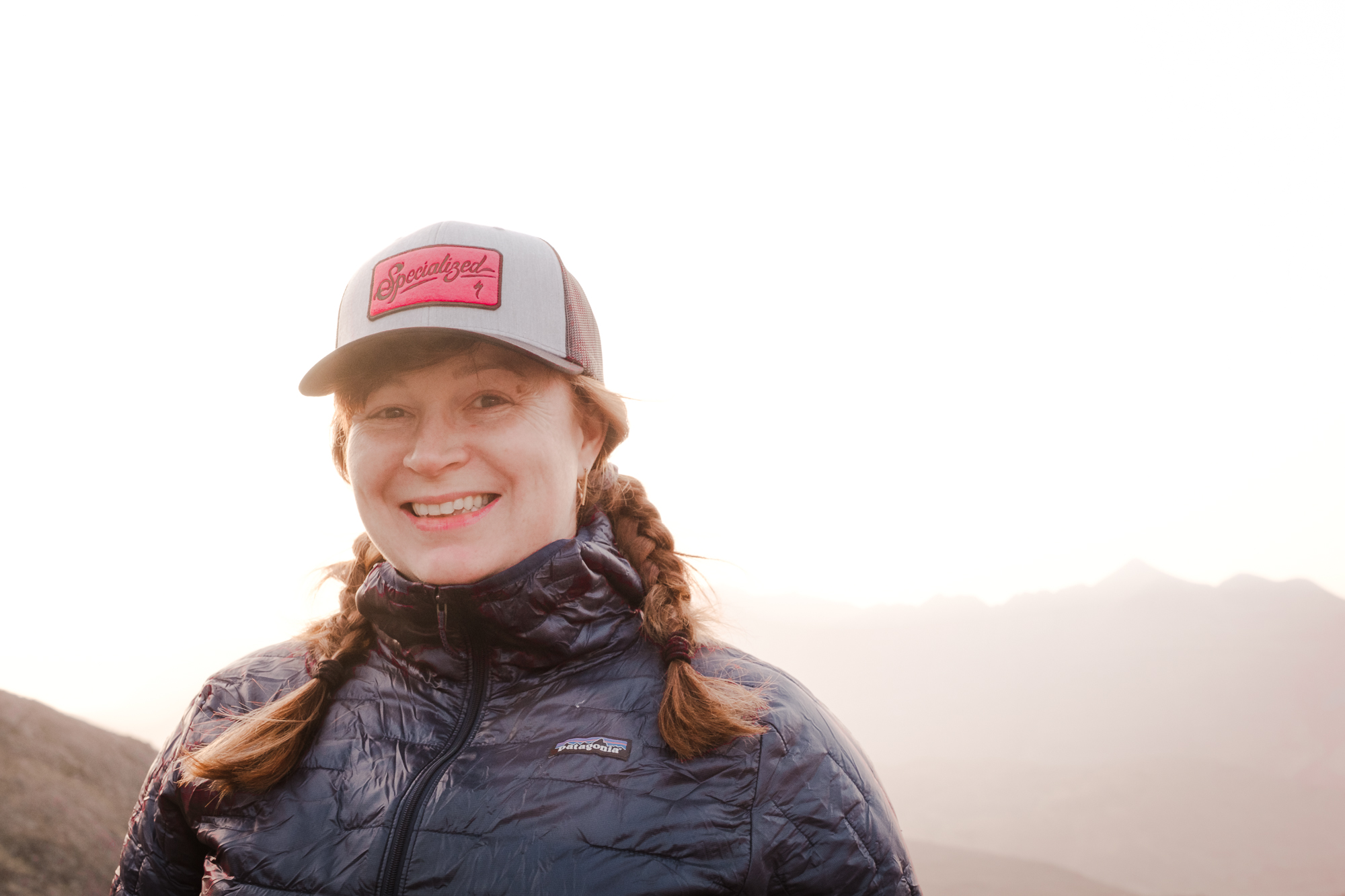Winning an Olympic Gold Medal in cross-country mountain biking takes dedication, training and preparation. BikeRadar caught up with Scott-Odlo rider Jenny Rissveds, who added a Gold at Rio to her Under 23 World Champion title this year, to discover some of the mental and physical training techniques and strategies she uses to perform to the highest level.
- Best women's mountain bike: a buyer's guide to help you choose the right bike for you
- Six of the best women's mountain bike saddles
- 9 steps to your own life-changing adventure
It goes without saying that as an athlete at the top of her game, Rissveds spends a lot of time preparing physically for the rigours of cross country racing. Speaking to the Olympic champion, who has a calm demeanour and a practical, measured approach to racing, it's also clear that mental preparation is a very important part of her training, and one that she credits no small part of her success to.
Mental preparation
1. Bring in expert help
"As a top athlete, you want to overcome everything on your own. You don't need any help from anybody else. I think that's what makes you better, but sometimes you have to accept that you can't manage everything by yourself." Rissveds tells BikeRadar, and her views on this are borne out of a shocking incident in her riding history.
I had a really bad crash on some steep switchbacks. I slipped out and fell over the edge, and was stuck in a tree on the other side. If that tree hadn't been there, I'd have been finished
"I used to do road races as well, and I was at the Junior European champs in Italy when I had a really bad crash on some steep switchbacks. I slipped out and fell over the edge, and was stuck in a tree on the other side. If that tree hand't been there, I'd have been finished.
"After that I struggled a lot. I was so scared on the bike. I didn't want to ride any more; it was a tough time. So I started working with a mental coach. In the beginning, I told him 'I don't need your help, I can do this on my own.' But he sees stuff in a completely different way, from a different point of view. When I first started to understand this, and tried to think in the same way as he thinks, I started to see positive outcomes."
It's self-evident that this approach has worked for Rissveds. From a deep and understandable fear that began with a terrifying experience, she has worked with her coach to develop strategies and techniques that have not only overcome those concerns, but also helped her improve her performance.
Seeking professional help, whether it's physical or mental, can help to deal with sticking points or remove blockers. Experts can look at you, your riding, training and approach to the sport, and help identify areas of improvement and provide the tools to progress.
2. The power of visualisation
Visualisation is a proven strategy to help performance, whatever the goal or activity, and it can be used in various different ways. Imagining what it would be like to cross the finish line, for example, can help motivate a rider through tough training.
Rissveds uses visualisation as an actual training aid, spending time picturing the course, mentally 'riding' it, from the comfort of her room. "I spend so much time in hotel rooms!" she laughs. "You train on the course and then you go back to the room and wait, then it's dinner and more waiting. [This gives me] time to think about the course. Before a race I visualise the course and some sections, if I struggled a bit with specific parts. Your brain thinks you are out riding, so it's like extra training on the course."
3. Focus on performance, not position
You might be surprised to hear it, but Rissveds doesn't go into each race looking for a particular position or result. "I try not to focus too much on the result. Many riders say, I think, 'I have to be top 10 or top five at this race', and I did that as well, but then I realised it doesn't work too well. Because say I set a goal — top five — and then I get 7th place. That's still super good, but it's not good enough because I had a different goal."
Anything can happen in a race, and even the rider with the greatest skill and fitness can suffer a mishap; a puncture, a slip, a thwarted line choice can all affect the result and are often beyond the rider's control. Instead, she focusses on giving her best possible performance and whatever happens she can walk away from the event knowing that she did the best she could.
"I think the most important thing to do before a race is trust yourself and trust all the work you put in on your goal and then just believe in yourself and try to make the best out of it."
4. Make a plan, but be adaptable
Many people ask Rissveds if she goes into events with a particular strategy, and while the answer is yes — "I try to ride in the front but not right at the front, or be too much on the offensive as I'd risk blowing up" — she adds a caveat. As mentioned above, things can happen during racing that can't be accounted for by planning a strategy. Rissveds comments that remaining calm and adaptable is key to success in these situations. You can't plan for everything and sometimes you've got to be able to abandon the plan and develop a new one on the hoof, without getting panicked or thrown.

Physical preparation
1. The importance of the off-season
You'll hear it time and time again, and for good reason. The off-season is crucial to a successful performance in the following year, and not just because it's over these months that you lay the groundwork for strength, fitness and stamina in the season ahead. Rest, recuperation and time to refocus is also important.
"If you train 100 percent all year long you'll most probably get injured, and knee and back injuries are common in cycling." comments Rissveds. "To avoid that you have to have some periods of rest, with not too much training and not too much cycling. At this point, in the early off-season, I don't have a training plan, I just do what I feel like. I start to train more seriously but not super-seriously in November. In January, you can start to be more serious and push a little harder."
2. Cross training is important, both for fitness and motivation
There's no argument that cross training has multiple benefits for cyclists, competitive or otherwise. Doing activities off the bike, such as gym work, or another sport, can help work different muscles and provides a good counterbalance to hours spent in the saddle. It's also useful for addressing areas of weakness or injuries. But the advantages go beyond the purely physical, as Rissveds explains:
"During the off-season I do a lot of different things. I go to the gym, I run, I swim and sometimes I go cross-country skiing. I live in a cross-country ski area of Sweden and so when the conditions are good — lots of snow and not too cold — I do that. It's important for your motivation to do lots of different things."
While cross country skiing may be out of the question for many of us, sports such as running, swimming and climbing are also good partner activities to road cycling and mountain biking.
Mixing up your cycling disciplines can also reap rewards. Road cyclists can benefit from the handling skills mountain biking on technical terrain can impart, and the fitness and stamina gains of road miles and hill reps will boost many a mountain biker's fitness. And of course, there's the fun element. "Normally during the winter there's snow in Sweden, and it's too cold and slippery on the road [to go road cycling], but during the summer I enjoy it and think it's fun. It's good to do something different."
3. Adapt and evolve your training
It can be all too tempting to just repeat the training approach that's worked for you in the past, and while it's good to stick to what works, there are distinct advantages to testing out new techniques and approaches, as Rissveds herself has found.
"Last season I started to work a little with high altitude training, and realised it worked out really well for me," she shares. "Each season you learn something new that you can adapt for your training and your upcoming years."
If you're serious about training and improving your performance, it pays to keep abreast of developments in sports science. Try out new things, see if they work for you, and if they do, incorporated them into your training program.
4. Consider a training camp (but don't forget to work beforehand)
The long winter months can be a drag, and dark mornings and damp days aren't great motivating factors. Winter training camps can provide a concentrated dose of cycling, training and good nutrition to boost your riding ahead of the new season, not to mention a chance to ride in warm temperatures and escape the winter gloom. Rissveds will be heading off with her team to sunnier climes in the new year for exactly that but also says that there are advantages to training at home in the run up too.
"Some people, when the first snow comes and it starts to get a little bit dark and cold, want to escape and go somewhere with nice weather and good cycling conditions. But if we're talking about motivation, I think it's good to stay at home where it's a little bit tough, with rough conditions, then you'll appreciate the great weather at the training camps more."
You also want to be in good physical condition to actually make the most of your camp. As they say, winter miles in your legs are like money in the bank; the more you put in now, the more you'll have ready to use when race season comes around.

